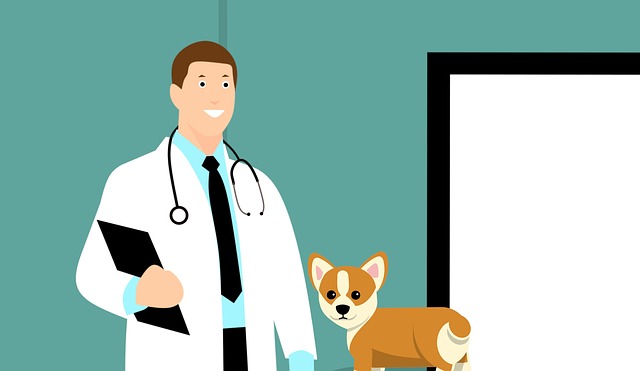
Worms are common health problems when it comes to dogs and they can be a real menace. Thankfully, while they might be a concern to dog owners, worms in dogs are, typically, easy to treat. Today, we want to answer the question — how do you know if your dog has worms.
We have done some research, gleaning from the findings of experts in the field. Our article today, therefore, covers everything you need to know about how to tell if your dog has worms.
But beyond that, we will also find out the different types of worms that affect dogs as well as the ways dogs pick up these worms. We will then discuss how you can treat worms in dogs and how you can prevent your dog from picking them up. Sounds good, right? Alright. Let’s get into it.
Table of Contents
How Do You Know If Your Dog Has Worms? — Common Signs And Symptoms
1. There Are Visible Eggs Or Worms In the Feces
This is about the most common way you can tell that your dog has worms. Your dog may pass out the worms themselves or their eggs in his feces. However, please note that not all worms are visible to the human eye. So, they might be passed out in the feces and yet you won’t see them.
2. Consistent Rubbing Of The Behind On The Ground Or Against The Furniture
If your dog seems to be itchy around his behind, then it might be as a result of worms. Worms can cause an irritation around your dog’s behind which causes him to rub his rear on any available object for some relief.
However, issues with the anal glands and other conditions totally unrelated to worms can also an itchy behind. So, if your dog is dragging his behind on the floor or against the furniture, don’t immediately assume it’s because of worms. It could be any other thing. So, ask your vet first.
3. Vomiting Up Visible Worms
Sometimes, worms can cause your dog to vomit and when he eventually does, sometimes, the vomit could contain some worms as well.
4. Bloated Stomach
This is more commonly seen in puppies who contract worms from their mother. If your puppy has a bloated belly, it’s possible it has worms.
5. Increase In Appetite, Constant Hunger, Weakness, Weight Loss

When a person or a dog has worms, the worms tend to steal the food in the body. This will, naturally, leave your dog weak, tired, and always hungry. If it gets severe, your dog might even start to lose weight.
Now, these symptoms are, sometimes, indicative of another health challenge. So, consult your vet first if you notice any of these signs or symptoms.
6. Diarrhea
If your dog is having diarrhea and is passing bloody stools, it might be as a result of worms. However, diarrhea is a very common symptom of a lot of illnesses and bloody stools usually indicate pretty grave health issues that you don’t want to joke with.
So, if your dog’s stools are bloody, it’s time to call the vet.
(Click here to learn How to Clean Dog Diarrhea From Carpet)
7. Coughing
If a dog has heartworms and it’s at the advanced stage, one of the symptoms you might notice is coughing. Roundworms and hookworms can also cause coughing as well.
8. Dull Coat
Healthy dogs are supposed to have thick, and shiny coats. However, when worms come into the picture, the coat can begin to dry out and have a dull appearance. An appearance of rashes or hair loss can also be indicative of the presence of worms.
9. No Symptoms
Sometimes, your dog can have a worm infestation and be totally asymptomatic. In such a case, the only way you can confirm the presence or absence of worms in your dog is to have a fecal or blood exam carried out by your vet.
Types Of Worms That Commonly Affect Dogs

1. Roundworms
Roundworms can grow quite large, sometimes up to 6 inches, and they primarily live in the intestines. In the feces, roundworms are identifiable as noodle-like bits and are really small in size. Roundworms are a real problem in puppies and typically cause the bloated stomach which you notice in puppies with worm infestation.
2. Hookworms
Hookworms are thin and small in appearance. They are referred to as hookworms because they “hook” into or bite the intestinal walls. They are microscopic in size and are one of the worms that are not visible to the naked eyes. To detect the presence of their eggs in the feces, the vet would have to do a microscopic examination of the feces first.
3. Tapeworms
Tapeworms have a flat, longish appearance with a segmented body, and live primarily in the intestines of their host. Sometimes, the segments of the tapeworm break off and are passed out in the feces of the host. When these segments dry out, they resemble rice grains and you’d often find them containing eggs and attached to the fur around the host’s anus.
The most common tapeworms that affect pets are the ones passed through fleas called the Dipylidium canium. So, if there are fleas visible on your dog’s coat, then it’s possible he has tapeworms.
4. Whipworms
Whipworms have a thread-like form and live predominantly in the large intestine. Adult whipworms are visible to the human eyes. However, feces might not necessarily contain many worms, making them a little difficult to detect. In most cases, a microscopic examination of several samples of feces from the affected host will be necessary to detect the presence of whipworms.
Though treatable, whipworms are about the most difficult kind of worms to get rid of.
5. Lungworm
There are many types of lungworms. However, the most popular lungworm that affects dogs is the Angiostrongylus vasorum. In many cases, the presence of this worm can be life-threatening.
Dogs often come in contact with the worm by eating snails and slugs or licking surfaces that are contaminated with whipworms.
The only preventatives and treatments for lungworm, for now, are prescription medications. That is, you can’t buy them over the counter. You’d have to present a prescription from your vet before you can purchase lungworm medication for your dog.
6. Heartworms
These are about the most dangerous worms a dog can come in contact with. They are not easily detected and require blood testing to be discovered.
Heartworm disease is potentially fatal in dogs. However, there are preventative medications available for dogs which you can get from your vet.
Heartworm is spread by mosquitoes and is very commonly seen in dogs in the US.
(Click here to read: How Long After Heartworm Treatment Can Dog Be Active)
How Worms Spread To Dogs

1. Mother To Child
It’s possible that a mother can pass on worms to her puppy through the breastmilk. Roundworms, particularly are passed through the breastmilk to suckling puppies.
In adult dogs, roundworms can lay eggs which, in turn, become dormant cysts. The eggs themselves cannot be treated or eliminated. They remain dormant and then get activated when the female dog becomes pregnant.
When the dog finally has her puppies, the eggs, now worms, will pass through the milk to the puppies. The symptoms of roundworms in affected puppies is a bloated stomach.
2. Dirt
Dogs can come in contact with worms such as roundworms and hookworms through dirt. These worms lay their eggs in the dirt where they develop into larvae. From there, if a dog comes in contact with the dirt, they could also become infected.
3. Fleas
Young tapeworms live in fleas and can pass on the tapeworms to a dog that swallows a flea.
4. Hunting
Wild animals, sometimes, carry worms. If your dog kills or eats wildlife, he might become infected with worms.
5. Mosquitoes
Mosquitoes are responsible for spreading heartworm in dogs.
Diagnosis Of Worms In Dogs

When you take your dog in to see your vet for worms infestation, he will give your dog a thorough examination and also ask you a number of questions to get your dog’s medical history.
Many healthy adult dogs will never show a symptom of worm infection. Puppies, on the other hand, might become sick especially when overburdened with a heavy roundworm infestation.
Worms can sometimes become visible in the affected dog’s feces or close to his bottom.
Tapeworms look like rice grains and are flattish in appearance. They are also sometimes visible around a dog’s anus as well.
As for roundworms, there are two species you see commonly affecting dogs which are the Toxocara canis and the Toxasaris leonin. These two worms have a long, spaghetti-like, whitish appearance.
If you find any worm at all, it’s a great idea to get them and take them with you to see the vet. This will help your vet identify what worm it is much faster.
Generally, if you notice any of the symptoms we listed as a clinical symptom of worm infestation in dogs, take your dog to the vet. They might have to run a test on his feces or his blood as the case may be to confirm the presence of worms or any other health issue that might be the cause of the symptoms presented.
Treating Worms In Dogs
If you suspect that your dog might have worms, then you want to take your dog to his vet. They will prescribe safe treatments which your dogs can take and feel much better afterward.
There are some common all-in-one treatments that take care of the most common types of worms. These medications are usually chewable and flavored which makes it easier for dogs to take them.
- Iverhart Max tablets contain three active ingredients. Ivermectin prevents heartworm, pyrantel pamoate treats hookworms and roundworms, and finally, praziquantel treats tapeworms.
[amalinkspro type=”showcase” asin=”B007SZ5RIU” apilink=”https://www.amazon.com/dp/B007SZ5RIU?tag=dpg-amalinks03-20&linkCode=osi&th=1&psc=1″ new-window=”true” addtocart=”true” nofollow=”true” sc-id=”4″ imgs=”LargeImage” link-imgs=”false” specs=”Available without a prescription.~~~Easy and convenient chewable.~~~Treats and controls seven strains of tape, hook and roundworms.~~~” btn-color=”#ff9900″ btn-text=”View on Amazon” alignment=”aligncenter” hide-prime=”0″ hide-image=”0″ hide-reviews=”0″ hide-price=”1″ hide-button=”0″ width=”750″]Triple Wormer Broad Spectrum De-Wormer[/amalinkspro]
- Selamectin is a treatment and preventative drug for hookworms, roundworms, and heartworms.
- Milbemycin oxime is a preventative drug for hookworms, heartworms, roundworms, and even whipworms.
- Praziquantel is used in the treatment of tapeworms.
Other common products used to treat worms in dogs include the following:
- Drontal Dog Tasty Bone Tablet which comes in the shape of a bone and is a fast-acting treatment for roundworms and tapeworms. It is appetizing to your dog and can be given to your dog at any point of the day with or without food.
- Panacur Granules is a broad-spectrum wormer taken orally. It treats tapeworms and roundworms in dogs, as well as in cats.
- Drontal Plus XL Beef Flavor Dog Worming Tablet helps to combat worms as well.
NB: Most multi-wormers are not usually as effective against the more dangerous heartworms, lungworms as well as tapeworms.
How Worming Treatments Work
What worming drugs do is to kill the existing adult worms. But please note that these treatment drugs usually do not have a residual effect. So, there is no assurance that your dog will not pick up worms again. However, if you make it a habit to kill the worms regularly, there shouldn’t be any problem caused to your dog from worms.
The good thing about worm treatments is that most deworming medications can cover the treatment of most worms. This makes it really convenient for dog owners to treat their dogs.
When treating your dog for worms, ensure that you give your dog the right dosage as that will ensure that the treatment works effectively.
Vets recommend that you treat your pet for worms every three months. However, if there is an increased risk of infestation, for instance, if your dog is a hunter or he lives with young kids or seniors, the frequency can be increased to monthly rather than once in three months.
How To Prevent Worms
There are a number of ways to keep the worms away from your dog.
1. Clean Up Dog Feces Immediately
Eggs remain infectious many years after they are laid and dog feces are a major path through which these eggs are spread. Get dog poop scoops and poop bags to help pick up after your dog.
2. Hand Washing
Washing your hands after you handle your pet should be a regular practice, especially when you have to cook or eat.
3. Worm Your Dog Regularly
Once your puppy gets to 2 weeks of age, ensure that you begin to worm him regularly either with Panacur Suspension Liquid or with Drontal Puppy. Do this every two to three weeks until they are weaned. When they are weaned, you can increase the intervals between dosages by up to 1 month. Do this monthly until your puppy is 6 months old after which you can now worm them once in three months.
The mother dog should also be treated while you treat her puppies. Just ensure that you speak with your vet before administering any worm preventative to a pregnant bitch.
As for adult dogs, they should be wormed once in three months or monthly if they are hunters or constantly around geriatric people or children.
4. Treat For Fleas Regularly
Medication such as Advantage or Frontline Plus are effective at preventing fleas and tapeworms.
5. Apply Household Flea Sprays
Every year, make sure you apply household flea sprays. This will help to rid your environment of adult fleas as well as larvae. Good flea sprays that are safe and effective include the Frontline Homeguard Spray and the Indorex Defence Spray.
Can I Get Worms From My Dog?
Yes, you can definitely pick up some worm from your dogs. Here are the three worms that can be passed from your dog to you.
1. Roundworms
You can pick up roundworms from your dog by coming in contact with soil where he must have defecated. The eggs pass through your dog’s feces to the soil. And should you come in contact with them and ingest them, they could enter into your body and cause some severe symptoms.
In humans, roundworms often make their ways internal organs affecting the eyes, the muscles, as well as the central nervous system. Children and people with a compromised immune system are most at risk for roundworm infestation.
2. Hookworms
Walking barefoot on soil or sand with hookworm larvae can cause hookworms infestation in humans leading to intestinal and/or skin disease.
3. Tapeworms
If humans come in contact with dog tapeworm, Echinococcus granulosus, a human can come down with a grave illness known as the hydatid disease. It’s quite rare a disease but when it occurs, it causes the formation of cysts in vital organs of the human system. If these cysts rupture, serious disease or death can ensue.
That said, you are not at risk of getting lungworm, whipworm, or heartworm from your pet dog.




